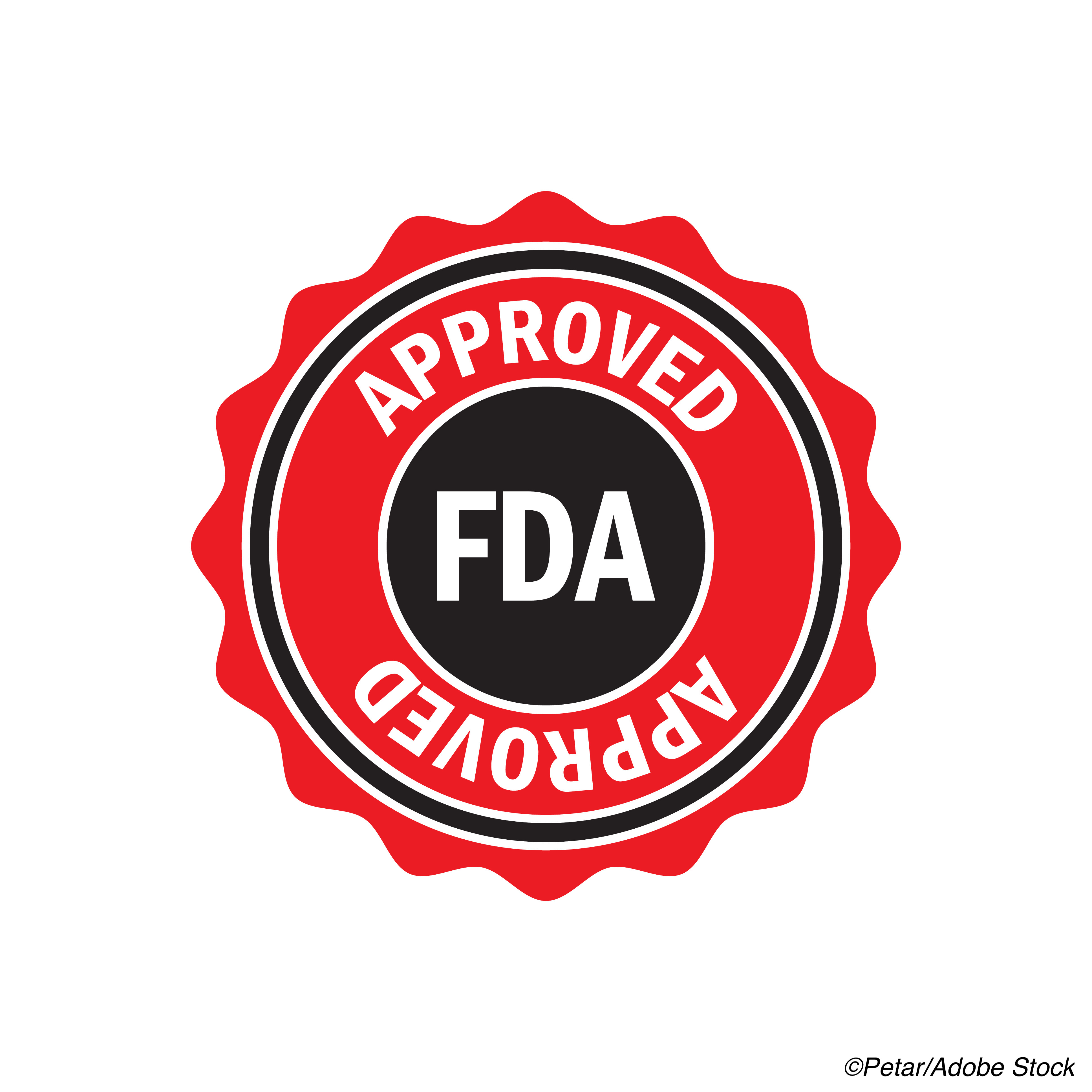The FDA granted accelerated approved for asciminib (Scemblix) to treat adult patients with Philadelphia chromosome-positive chronic myeloid leukemia (Ph+ CML) in chronic phase (CP), as well as a full approval to treat patients with Ph+ CML in CP with a T315I mutation.
Under these indications, asciminib, a tyrosine kinase inhibitor (TKI), will only be available for patients who were previously treated with two or more TKIs, the agency noted. For patients with Ph+ CML in CP, the recommended dose is 80 mg taken orally once daily at roughly the same time each day or 40 mg twice daily at roughly 12-hour intervals; the recommended dose for those with the T315I mutation is 200 mg taken orally twice daily at roughly 12-hour intervals.
This decision was based on findings from a pair of studies: ASCEMBL and CABL001X2101.
For the multi-center, randomized, active-controlled, open label ASCEMBL trial, a total of 233 patients with Ph+ CML in CP who were previously treated with at least two TKIs were randomized 2:1 and stratified according to major cytogenetic response status to receive either asciminib 40 mg twice daily or bosutinib 500 mg once daily. “Patients continued treatment until unacceptable toxicity or treatment failure occurred,” the FDA explained. “The main efficacy outcome measure was major molecular response (MMR) at 24 weeks. The MMR rate was 25% (95% CI: 19, 33) in patients treated with asciminib compared with 13% (95% CI: 6.5, 23; P=0.029) in those receiving bosutinib. With a median duration of follow-up of 20 months, the median duration of MMR has not yet been reached.”
In the multi-center, open-label CABL001X2101 trial, researchers evaluated the efficacy of asciminib in patients with Ph+ CML in CP with the T315I mutation. “Efficacy was based on 45 patients with the T315I mutation who received asciminib 200 mg twice daily,” the agency wrote. “Patients continued treatment until unacceptable toxicity or treatment failure occurred. The main efficacy outcome measure was MMR. MMR was achieved by 24 weeks in 42% (19/45, 95% CI: 28% to 58%) of the patients. MMR was achieved by 96 weeks in 49% (22/45, 95% CI: 34% to 64%) of the patients. The median duration of treatment was 108 weeks (range, 2 to 215 weeks).”
The most common side effects associated with asciminib are upper respiratory tract infections, musculoskeletal pain, fatigue, nausea, rash, and diarrhea, and the most common laboratory abnormalities seen in clinical trials included decreased platelet counts, increased triglycerides, decreased neutrophil counts and hemoglobin, and increased creatine kinase, alanine aminotransferase, lipase, and amylase.
Asciminib is manufactured by Novartis AG.
John McKenna, Associate Editor, BreakingMED™
Cat ID: 466
Topic ID: 78,466,730,466,192,725,925



